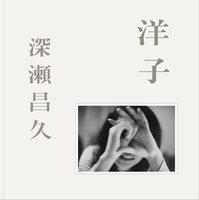S$155.35
- Board cover
- Rubber stopper
- includes original tote bag
- 51 images
- 340 x 340 mm
- Limited edition of 700
- ISBN 9784865411331
- May 2021
The book is composed of fifty-one images that Ishikawa Ryuichi, an Okinawa-born up-and-coming photographer, took in the mountain he had repeatedly visited since 2015.
Ryuichi has published provocative photography books, such as A Grand Polyphony (for which he won the Kimura Ihei Award) and okinawan portraits, in which he consistently contemplates the way of life. By taking snapshots and portraits of everyday scenes, he attempts to take in all the phenomena and existences around him with no bias. In the mountain, Ryuichi found death and life in equal measure. He felt his own existence was dissolving. And yet he kept taking pictures.
The images in this volume blur the borders between human and nature. They nullify individuality and reverse the roles of the internal and external. We see the transience and connectedness of lives and question what it means to exist.
The Inside of Life is a portfolio-style book, a compilation of large-format prints that enable the viewers to appreciate every image and life that Ryuichi has been observing intensely.
"When I went into the mountains and faced down nature, everything passed as though simply flowing around me, and it seemed like my own will was meaningless. I felt it to be a place where I had to simply face myself, and could only rely upon the senses of my entire body. When the rocks or grass I was desperately clinging to with my hands slipped away over the sheer cliff my head was plunged into chaos and communication with my body was numbed; each time I saw a snow slope filling a gorge the thought of it collapsing away from my feet and burying me passed through my head, rendering me almost unable to stand, my extremities trembling violently.
At all times, life and death were just naturally in front of my eyes. The rainbow trout caught deep in the mountains with nothing in its stomach but a horde of stink bugs; the pool, finally reached at the mountain's peak after crossing into true wildlands, where so many forest green tree frogs had gathered to lay their eggs, only to be attacked by mountain birds; most of those frogs were not completely eaten, but had their eyes squeezed out, bellies ruptured, with eggs leaking thickly out.
In order to survive the days that I spent amid this nature with Mr. Bunsho Hattori, we picked many plants, and captured, killed, and ate animals many times. I was so grateful to acquire something to eat, everything tasted so good. Walking long each day and then eating gave me the sensation of that energy spreading out to every corner of my continually working body, and the more natural something I put into my mouth was, the better it seemed to feel. When I did so, the tinge of regret I felt that I myself had not perished among the workings of nature, the tinge of guilt I felt at my existence within this natural world, and all the thoughts and philosophies that appeared in my head were surpassed by a feeling of being alive that rose up through my body.
The sensations of touching flesh and blood, the smooth and firm feeling of internal organs, their weight, was erotic; the smell unleashed from inside stomachs and intestines increased my worries about coming into contact with bacteria and parasites, and as though responding to this internally myself, my body felt both sick and a surge of excitement. Organs are far more functional than any machine, and their beauty seemed perfect to me; I felt that feelings and sensations that I couldn't understand by simply thinking about them were all coming from here. The sight of them creating something beyond their individual existence and intent overlapped for me with the overgrown trees and craggy rocks.
When I touched upon the inside of life, and was made aware of that overwhelming power, the divisions between all things became connected by a gentle gradation, and I felt myself to also be placed within that cycle."
Extracted from the afterword Ryuichi Ishikawa "The Inside of Life"







































